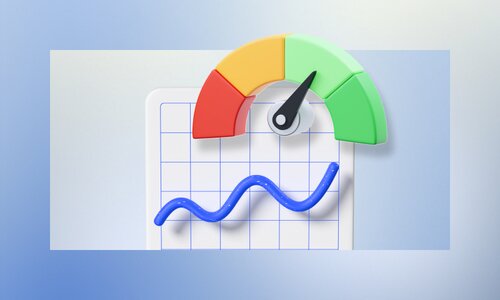As we enter a new year, it's normal to want to lean into big New Year’s resolutions. Maybe this is the year you finally use that gym membership six times a week or save $20,000 grand by July.
And don’t get us wrong, having goals is great. But like fad diets and those crazy social media challenges, most resolutions fail simply because they require too much, too fast.
Instead, this year at Arrived, we’re focusing on building something more enduring and impactful — positive financial habits.
Unlike fleeting resolutions, habits are the building blocks of a sustainable financial future.
Here’s some of our favorites from our team:
Understanding the Power of Habits
Though resolutions might work for some, building solid habits can be more impactful overall. According to research, habits are actions we perform automatically, often without conscious thought. This automation makes them more reliable than resolutions, which rely on fleeting motivation. You’re setting up a consistent system that works for you by focusing on habits.
Habit 1: Track Your Spending
Understanding where your money goes is the cornerstone of personal finance. Start by meticulously tracking every expense, no matter how small. This habit isn't just about recording numbers; it's about gaining insights into your spending patterns. Use budgeting apps or a traditional spreadsheet. As you become more aware of your spending habits, you'll find opportunities to cut unnecessary expenses and redirect funds toward your financial goals.
Tips for Effective Tracking:
- Categorize your expenses for better analysis.
- Review your spending weekly to stay on top of your budget.
- Use technology to simplify the process, like linking your bank accounts to budgeting apps.
Habit 2: Set SMART Financial Goals
Setting financial goals is about creating a vision for your financial future. Whether saving for retirement, paying off debt, or building an emergency fund, your goals should be SMART: specific, measurable, achievable, relevant, and time-bound. Break down each goal into smaller, manageable steps, and celebrate milestones.
Making Goals Achievable:
- Write down your goals and review them regularly.
- Share your goals with someone for accountability.
- Adjust your goals as your financial situation changes.
Habit 3: Automate Your Savings
Automating your savings removes the temptation to spend what you should be saving. Set up automatic transfers from your checking account to your savings account right after each payday. Determine a percentage of your income to save and gradually increase it over time. This 'set and forget' method ensures a consistent and growing savings fund.
Benefits of Automation:
- Consistency in savings, irrespective of your spending habits.
- Reduced temptation to spend money that's meant for savings.
- Peace of mind knowing a portion of your income is automatically saved.
Habit 4: Invest in Financial Education
Knowledge is power, especially in finance. Invest time in understanding financial concepts, market trends, and investment strategies. This can be through reading books, following reputable finance blogs, attending seminars, or joining finance-focused online communities. The more informed you are, the better decisions you'll make.
Ways to Enhance Financial Literacy:
- Subscribe to financial news and blogs.
- Join finance-related workshops or webinars.
- Regularly review your financial plans and learn from your experiences.
Habit 5: Check Your Credit Regularly
Your credit score is a crucial aspect of your financial health. Regular checks help you understand how your financial behavior influences your credit. It also allows you to spot any inaccuracies or fraudulent activities early. Most financial advisors recommend checking your credit report at least once a year.
Credit Check Strategies:
- Use free credit report services offered by many financial institutions.
- Understand the factors affecting your credit score.
- Take immediate action if you spot any discrepancies in your report.
Habit 6: Seek Professional Advice
Navigating the financial landscape can be complex. Consulting with financial advisors can provide clarity, especially for investment decisions, tax planning, or retirement. A good financial advisor can tailor advice to your unique financial situation, helping you to make the most of your financial resources.
When to Consult a Professional:
- When starting an investment plan.
- For major financial decisions like buying a house.
- When planning for retirement or other long-term goals.
Habit 7: Review and Adjust Regularly
Your financial situation and goals will evolve. Regularly review your finances to ensure your habits and strategies remain relevant and practical. This includes reassessing your budget, investment portfolio, and long-term goals. An annual financial review is a good habit to ensure you're on track with your financial journey.
Tips for Effective Review:
- Set a specific time each year for a comprehensive financial review.
- Adjust your budget and savings goals as your income or expenses change.
- Stay flexible and adapt to new financial circumstances or opportunities.
Habit 8: Diversify with Real Estate Investment
Considering real estate investment could diversify your portfolio, and the Arrived Single Family Residential Fund may provide a potential path to this asset class. Real estate might blend rental income and appreciation potential, contributing to a balanced investment strategy. Investing through the Arrived Single Family Residential Fund could simplify entry into the real estate market, offering a possible way to add this asset class to your financial habits.
Key Strategies for Effective Real Estate Investment:
- Start Small: Begin your real estate investment journey with a manageable amount and gradually increase your stake as you become more comfortable.
- Stay Informed: Regularly educate yourself about the real estate market trends and how they impact your investment.
- Review and Adjust: Continuously monitor the performance of your investment in the fund, adjusting your strategy as needed to align with your long-term financial goals.
Good financial habits are the stepping stones to financial freedom and well-being. This year, focus on building and watching these habits transform your financial life. Remember, it’s not about making grand resolutions but small, consistent changes that lead to big results. Start today, and make this year the beginning of your best financial journey.
Want to build investing into your financial habits? Anyone can invest with Arrived starting at $100. Arrived offers both single family residential properties and vacation homes you can hand-select to build a portfolio of fractional real estate, or you can opt for the always-available Arrived Single Family Residential Fund.








